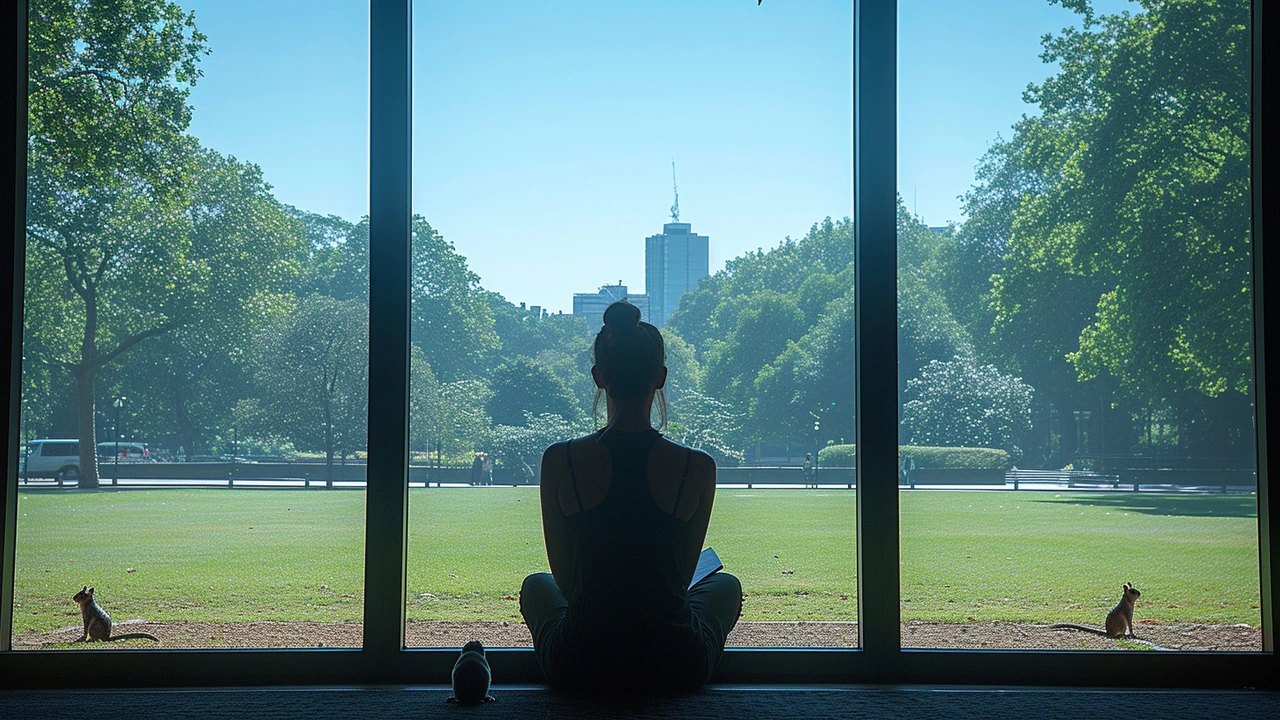Managing Health Worries: Practical Ways to Calm Health Anxiety
If constant health worries steal your peace, you can learn simple steps to take back control. Start by noticing the pattern: what thoughts happen, what triggers them, and how you react. Write down symptoms for a week. That turns vague fear into concrete facts you can discuss with a doctor instead of spinning in your head. Tracking also helps you spot real warning signs and ignore harmless fluctuations.
Limit checking. Set one short time each day to review symptoms, test results, or health news. Outside that window, refuse extra checks - hide apps, remove quick links, or ask a friend to help you stick to the rule. More checking feeds anxiety. Less checking gives your brain a chance to calm down and find balance.
Practical tools you can use right now
Use a 4-4-6 breathing rhythm: breathe in four counts, hold four, breathe out six. Do it for three minutes when panic hits. Grounding works too. Name five things you can see, four you can touch, three you can hear, two you can smell, one you can taste. That brings your focus away from worst-case thoughts and back to the present fast.
Create a short action plan for real health issues. If a symptom is new or worrying, list two concrete steps: call your doctor and track the symptom for three days. Concrete steps reduce the urge to catastrophize. Share the plan with someone you trust so you don't face fear alone.
Build long-term habits that shrink worry
Move your body daily. Even a 20-minute walk eases anxiety chemicals and clears thinking. Sleep matters too. Keep a regular bedtime and limit screens an hour before bed. Eat simple meals that steady blood sugar. Low-energy eating can worsen anxious thoughts.
Practice short mindfulness exercises each day. Try a two-minute body scan or a five-minute guided meditation. Over weeks, these small habits lower reactivity so worries don't take over as easily. Creative outlets help as well - sketching, journaling, or playing music gives your mind a different channel to process stress.
When worry stays intense, get professional help. A therapist can teach CBT techniques that change unhelpful thinking. If panic or health fears are disrupting work or relationships, medical advice might include short-term medication while skills develop. Asking for help is a smart step, not a failure.
Finally, be specific about progress. Celebrate one small win each week: one fewer check, one calm night, one helpful conversation with a clinician. Small wins build trust in your ability to manage fear. Over time, those wins stack up and health worries lose their hold.
Use helpful tools: keep a simple symptom list, use a timer for checking, try a reliable mindfulness app for short guided sessions, and schedule regular, brief check-ins with your doctor instead of constant searching. If you journal, jot down the exact worry and one logical counterpoint. That habit trains your brain to question fearful thoughts. Over months, these small changes shift how you respond to health worries and heal.
Overcoming Health Anxiety: A Journey to Well-Being and Peace of Mind
Hey everyone, it's your friend here, sharing my personal journey on how I'm fighting to break free from the powerful hold of health anxiety. You know, it's that relentless worry about your health that just doesn't let go, even when you're doing alright. I've been on this tough path, trying out different strategies and methods to regain control over my thoughts and my life. I'm telling you, it's been quite the ride! And now, I really want to open up and talk about the insights and the breakthroughs I've had, hoping it could light the way for others who are struggling too. Let's tackle this together, and I promise, we'll get to a place where our health concerns stop controlling us!
View More





